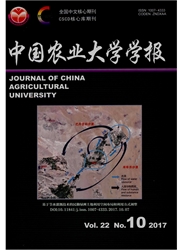

 中文摘要:
中文摘要:
基于1999—2013年全国30个省(市、自治区)的面板数据,从生产要素市场化视角出发,重点探索了金融(资本)、劳动力和土地的市场化水平对城乡居民收入差距的影响及其作用机理。研究发现:1)全国层面,金融市场化水平提升会扩大城乡收入差距,劳动力市场化的作用不明显,土地市场化有利于缩小城乡收入差距。2)分时段和分区域的差异化分析表明,3种要素的市场化在1999—2007和2008—2013这2个时段的影响存在时段差异性、对东部和中西部的影响存在区域差异性。3)进一步的机理分析发现,金融市场化和劳动力市场化水平的提升能够有效提升城镇居民收入水平,土地市场化和劳动力市场化则是农村居民收入增长的推动因素。基于上述发现,提出了针对性的政策建议。
 英文摘要:
英文摘要:
From the perspective of key factor marketization level,the impact and mechanism of financial(capital),labor and land market level to the income gap between urban and rural residents were explored based on 1999—2013national 30provinces(municipalities and autonomous regions)panel data.The results showed:1)With the upgrading of the level of financial market nationally,the income gap between urban and rural areas gradually expanded,and the level of labor market had no significant influence on the income gap between urban and rural areas,while land market was conducive to narrow the income gap;2)Two periods,1999—2007and 2008—2013,the results of eastern and centralwestern areas regional analysis both showed that the three elements had different impacts;3)Mechanism analysis discovered that finance and labor market can effectively improve the income of urban residents,and finance and land market can effectively improve the income of rural residents.Based on the above research,several specific policy recommendations are put forwarded.
 同期刊论文项目
同期刊论文项目
 同项目期刊论文
同项目期刊论文
 期刊信息
期刊信息
